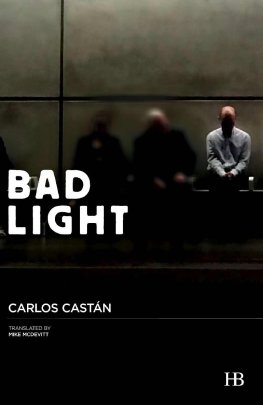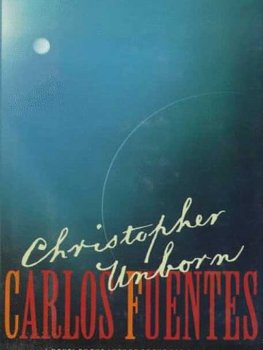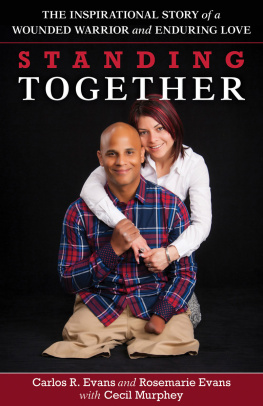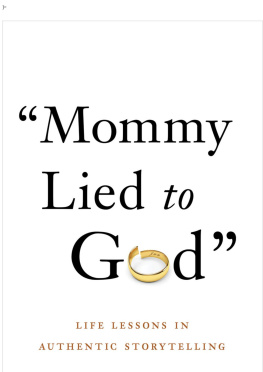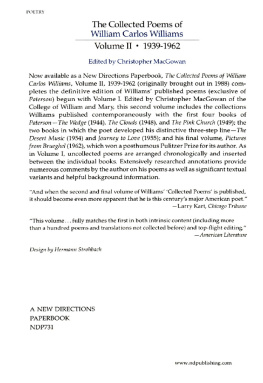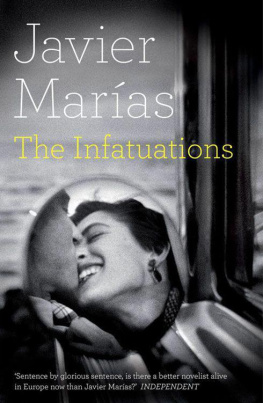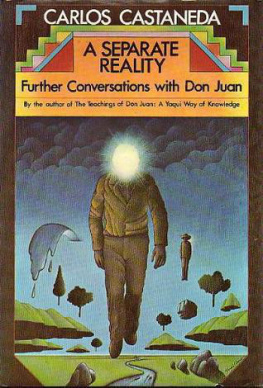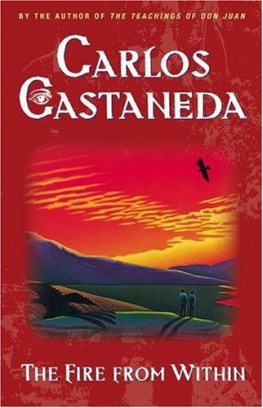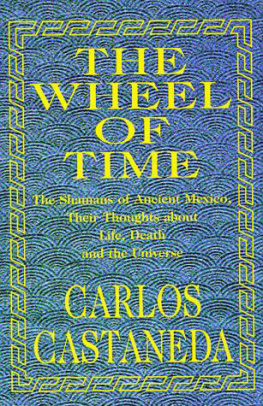Carlos Castán - Bad Light
Here you can read online Carlos Castán - Bad Light full text of the book (entire story) in english for free. Download pdf and epub, get meaning, cover and reviews about this ebook. year: 2016, publisher: Hispabooks, genre: Prose. Description of the work, (preface) as well as reviews are available. Best literature library LitArk.com created for fans of good reading and offers a wide selection of genres:
Romance novel
Science fiction
Adventure
Detective
Science
History
Home and family
Prose
Art
Politics
Computer
Non-fiction
Religion
Business
Children
Humor
Choose a favorite category and find really read worthwhile books. Enjoy immersion in the world of imagination, feel the emotions of the characters or learn something new for yourself, make an fascinating discovery.
- Book:Bad Light
- Author:
- Publisher:Hispabooks
- Genre:
- Year:2016
- Rating:4 / 5
- Favourites:Add to favourites
- Your mark:
- 80
- 1
- 2
- 3
- 4
- 5
Bad Light: summary, description and annotation
We offer to read an annotation, description, summary or preface (depends on what the author of the book "Bad Light" wrote himself). If you haven't found the necessary information about the book — write in the comments, we will try to find it.
Bad Light — read online for free the complete book (whole text) full work
Below is the text of the book, divided by pages. System saving the place of the last page read, allows you to conveniently read the book "Bad Light" online for free, without having to search again every time where you left off. Put a bookmark, and you can go to the page where you finished reading at any time.
Font size:
Interval:
Bookmark:
Carlos Castn
Bad Light
For V.
I could just remember how my father used to say that the reason for living was to get ready to stay dead a long time.
W. FAULKNER, As I Lay DyingWe were dead and we could breathe.
PAUL CELAN, Memory of France, Sand from the UrnsTo explain with words from this world that a ship parted from me with me on board.
ALEJANDRA PIZARNIK, Tree of Diana, 13I. THE MONSTER
The monster was made by fear.
WILLIAM LINDSAY GRESHAM, Nightmare Alley1 (dead behind these eyes)
The two of us had recently moved to Zaragoza, in the space of a few short months, Jacobo first, then me, both newly separated, still bearing the imprint of a wedding band on our fingers, that ring of slightly paler flesh that serves as a sort of badge, announcing ones newly unveiled, somewhat shameful solitude to the world. I guess we were each on the run in our own way. He, intent on starting afresh after his early retirement, and I perhaps somehow following in his footsteps, not so much out of relief at being able to call on his company from time to time as having been seduced, I believe, by the powerful lure that beginnings have always held for me, the blank page, starting over anew, any situation that can in my minds eye conjure up ships burning in distant bays or homes left behind without prior warning, just like that, without turning the key in the lock, leaving on the table the dirty dishes from the evening meal the night before. People, say, who are released from jail or discharged at last from the hospital after a harrowing detox and who, with a handful of belongings, rent out a room in some unknown place, far from everything that happened before, placing their toothbrush in a glass on the sink, tossing a couple of changes of clothing into the drawers, and perhaps also a revolver or a photograph of a woman in a picture frame that can barely stand upright, before opening the window to air out the room and let the show commence. Then they see the neon lights on the building across the street and the hustle and bustle of a hostile neighborhood in which theyll gradually have to get their bearings. An official secondment at the right time or the taking up of a new administrative post can offer something along similar lines, the feeling of being alive against all odds and of the blank page still smelling of the printing press, awaiting events and ink. And all this despite the weariness and the old chains they will no doubt still have to drag behind them, shackled to their feet.
When Jacobo told me the details of his move and the opening measures of what appeared to all intents and purposes to be a proper new life, I couldnt help but feel, if were calling a spade a spade, a twinge of envy, for one tends, if only intermittently, to feel, out of an instinct for survival, that there is time yet to endow our remaining days with some sort of meaning and to build a new tower in the middle of nowhere so as to carry on living a longing, in short, for a change of scene, for new faces, for the simple possibility of losing my way down streets that lead who knows quite where or grabbing a coffee in bars in which I had never before set foot, a city, when all is said and done, with its mean streets and movie theaters, its record stores, its bookshops, its nights so similar to real nights. Everything as if to scale, like a toy, but real at the end of the day and waiting around the next corner. In the small town we first called home (for so many years, and how long each and every one of them felt), the lovely Provincia, its as if the fog of tedium which of its own accord, as a matter of course, already cloaked the evenings after a certain hour, steeping our bones in the dampness of a life already lived, a festering, repeated sorrow, like a strange morning dew, a sort of backward sweat that penetrated, from the outside in, the pores of every wall and of all that had gone before and was to come, leaving them drenched in emptiness and past and an ancient weariness that condemned you to walk half-slouched, to read listlessly, to endless naps so as not to have to see the pitiful death throes of time beneath the bad light that as soon took possession of the streets as it did the insides of homes and bars had slowly been thickening.
We had met years before, Jacobo and I. For quite some time, we would see one another almost every day, the standard, more or less routine after-work beer, lingering a little longer with each passing evening, sometimes until the early hours. That getting to know one another started out as something ecstatic and life affirming. There were not enough days in the week to see through all the plans we hatched, or hours in the night to list them. Such affinities are above all else a matter of focus, a way of looking at the world; all of a sudden you find someone who not only places the source of light in the exact same spot as you, they also train it in precisely the direction you were looking. Many people decide to take their leave from this world one way or another, but it is not often that two people do so at the same time and through the same door, seeing everything from then on from a very distant, identical angle. When such a coincidence does arise, its possible to scorn and admire in unison all that the world around us sets before our eyes, and to laugh at things, above all things held semi-sacred by the rest of humanity, untouchable subjects, delicate matters that cease to be delicate in the wee small hours, as if by magic after a certain time of night, amid the smoke of bars where customers stagger in and out under the weight of their histories, shadows in raincoats who drift across our field of vision and order drinks they down alone while the music devours them, characters in a theater too small to be taken all that seriously. Above all else, Jacobo liked to talk of women, both his more remote girlfriends (too many for my battered memory to retain the circumstances and names of with the precision he would have liked from his conversation partner, so as not to have to go over the same ground again and again) and his more recent extramarital conquests. His chatter could slide into an alarming muddle of dreamy girls and lion-like women, of more or less true exploits and others that amounted to little more than intentions or plans not fully thought through, a veritable verbal maze of flesh and fantasy in which I quickly got lost amidst all the many female names being mentioned, all the letters being sent back and forth, all the panties being hoisted up and yanked down. Never before, not even in movies, had women struck me as being as desirable as when recounted by Jacobo, nor amorous exploits as unsettling as when told in his words. His lips glistened as he recalled bedrooms, and skirts raised in the most precarious of hiding places, bare feet doing their sweet work beneath the most formal dining tables, some tales from way back, other from four days previously, surrenders and fits of madness, candor and fury, his arms catching the faintings of what seemed like ladies of myth suddenly transformed, as if by dint of a magical kiss, into mere broads, disheveled and stunning, panting and filthy. At first I feared that, as was only fair, he would expect similar confessions on my part, with the same degree of salaciousness and detail, but he soon realized I was far from comfortable discussing these matters, even at such times as those, when glasses are emptied quickly and I know the whole world is sleeping.
In contrast to that sort of never-ending revelry, the flipside of the brandy and the music, was what had from an early age been his lifes obsession: the horror of the German concentration camps and all their offshoots. His father had been a survivor of the Mauthausen camp, and he spent the years that followed his release tirelessly delivering seminars and all manner of speeches on his experience, on the duty to remember, and on his strange sense of guilt at having emerged alive from a hell in which so many had perished in the flames. Much like Primo Levi, he came to understand that public opinion eventually grows weary of a message repeated a thousand times over, he discovered that the world no longer wished to hear that tale of atrocity, especially after the start of the Vietnam War, which, as if it were a new, exuberant fad, rendered all that had to do with the previous barbarity outmoded in a matter of days. The image of horror was now that of napalm setting the jungle alight and no longer that of naked corpses piled up on the snow. Overnight, the World War was old news, as were the walking skeletons, the wheelbarrows full of carcasses with faces, the forced labor, the incinerating rooms, and the gas chambers. And also like Primo Levi, he ended his days by throwing himself headlong down a stairwell, weary of empty lecture halls, of deaf ears, and of the dreadful echoes of his own silence. The legacy handed down to Jacobo by his father was, above all else, guilt. He found it hard to forgive himself for not having listened more and better when the time came, for having, from a young age, grown bored without bothering to feign interest in the same old stories that tended to lead to the same tear-drenched scene, which struck him as being just as pathetic as it was unbearable. One always grows weary of other peoples nightmares and of the late-night screams from the room next door, no matter who those screams come from. You can listen for a while, take their hand in yours, stay up all night, offer a sedative, a glass of water, but if what you truly want is to carry on living, you have no choice but to mount some sort of barricade against all that, to turn a deaf ear, and, one way or another, to distance yourself. To beat a retreat, leaving the one whos screaming on their own. Its like abandoning a wounded man in a ditch at a moment when the enemy is advancing at breakneck speed and it would be foolhardy to stay put and watch him bleed to death. Only after his fathers death did Jacobo take any real interest in the story told by that broken man who wept at the movies, even the most lighthearted, screwball comedies, who sank into the couch, who sometimes came to a halt, gaze lost in the distance, the soup spoon hovering midway between the bowl and his lips. Jacobo read everything he could find on the subject, did his best to spread the word, and tried to take possession of that vision of horror. He felt he owed his father the nightmares that followed, the sleepless nights, the fears, the shadowy executioners roaming all night long through rooms and hallways. Id even say that in some strange way he grew to love that inherited suffering that, amid horror in spades, gave him back something of a fathers tenderness, a certain scent of home, the perfume of the old, bearable, just punishments. There are those who hoard, as if their lives depended on it, the pocket watch of a loved one, a portrait, an old fountain pen, or a lock of hair by way of a memento; Jacobo, meanwhile, had that fear. And he tended to it in his own way, he nourished it with photographs and memories and books. At first, when he spoke to me of the matter, I would feel somewhat uneasy and lower my gaze without knowing how to react, much like when as a child you have to offer your condolences to a classmate whos buried his mother two days previously. Youre never sure whether it is best to meet the tragedy with silence or words, whether to embrace the person, offer them your sandwich, or simply leave them be. Jacobo, however, as if he had taken the lesson to heart, took pains not to endow the matter with any particular gravitas in our conversations. He preferred to dwell on more or less general questions that interested him, such as how humans react when pushed to a breaking point, survival, endurance, the power of a grudge. And it was astonishing how easily we skipped from that subject to others in our conversations; without realizing it, wed again be discussing the idle gossip of the world around us, music and women, the trips wed make one day, and all of the cards yet to be played.
Font size:
Interval:
Bookmark:
Similar books «Bad Light»
Look at similar books to Bad Light. We have selected literature similar in name and meaning in the hope of providing readers with more options to find new, interesting, not yet read works.
Discussion, reviews of the book Bad Light and just readers' own opinions. Leave your comments, write what you think about the work, its meaning or the main characters. Specify what exactly you liked and what you didn't like, and why you think so.

